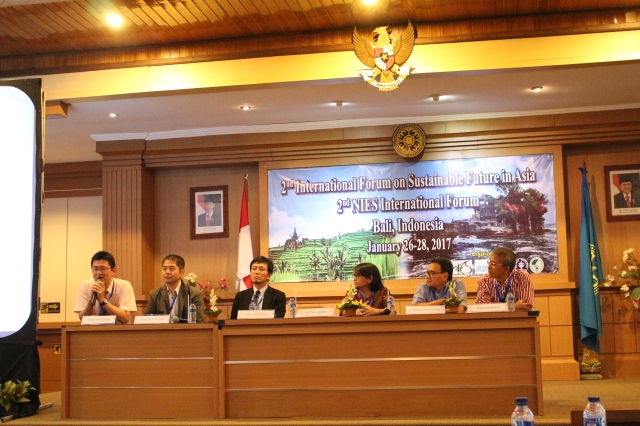
Synergizing Mitigation and Adaption Action
Speakers
-
Prof. Tsuyoshi Fujita (chair and speaker)
Director, Center for Social and Environmental Systems Research, NIES, Japan -
Prof. Kensuke Fukushi (chair and speaker)
Professor, IR3S, UTokyo, Japan -
Prof. Toru Watanabe
Professor, Dept. of Food, Life and Environmental Sciences, Yamagata University, Japan -
Prof. Kozo Watanabe
Associate Professor, Graduate School of Science and Engineering, Ehime University, Japan -
Dr. Yasuaki Hijioka
Head, Center for Social and Environmental Systems Research, NIES, Japan -
Prof. Rizaldi Boer
Executive Director, Centre for Climate Risk and Opportunity Management in Southeast Asia Pacific (CCROM – SEAP), Bogor Agricultural University, Indonesia -
Prof. Dr. Takeshi Takama
Stockholm Environment Institute (SEI), Sweden
CEO PT Sustainability and Resilience (su-re.co) -
Prof. Retno Gumilang Dewi
Head of Center for Research on Energy Policy, Bandung Institute of Technology, Indonesia -
Prof. Daniel Murdiyarso
Principal Scientist, Center for International Forestry Research (CIFOR), Indonesia
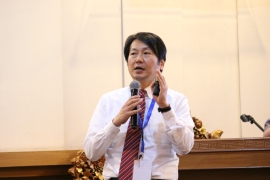
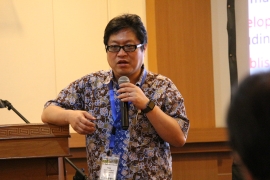
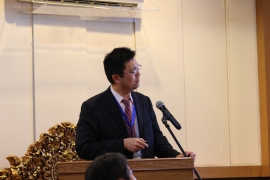
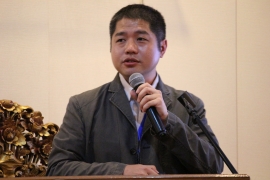
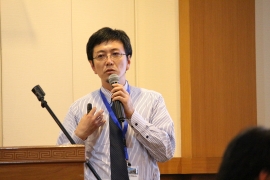
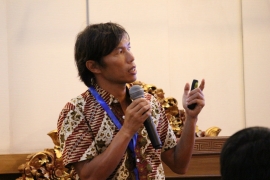
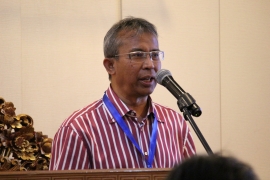
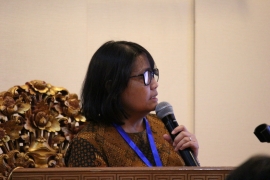
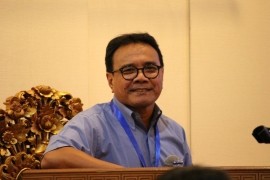
Summary
The concept of climate change “adaptation” itself may be sounds unfamiliar to many. For all of us, it is important to engage in initiatives to mitigate climate change, such as reducing greenhouse gas emissions, but we must also take actions (adaptation actions) to counter the impact of climate change that has already occurred or that will be unavoidable in the future.
In the “Synergizing Adaptation and Mitigation Actions” session, we heard from many speakers about examples of adaptation and mitigation actions that are being taken in different parts of Asia. To cite just a few of these examples in areas other than Japan, there were presentations on research into measures to curtail the spread of dengue fever, case studies of “sustainable-resilient” agri-businesses, and research about roadmaps for Indonesia to achieve a low-carbon society. Japan-related presentations included one on the Climate Change Adaptation Platform (http://www.adaptation-platform.nies.go.jp/en/index.html) initiative, and research into the coordination of environmental monitoring and community building using ICT.
Adaptation to climate change will become increasingly important going forward. In particular, as indicated by the use of the expression “vulnerable people” in the presentations, it is important to the people living in the circumstance susceptible to the impact of climate change, since it can be a serious threat to them.
As we move forward, there are suggestions of the need for integration of scale (global and local), methods, and other aspects of research into this area, and coordination and cooperation with a diverse range of stakeholders are expected to take on increasing importance.
Joint Statement
At the end of this session, NIES, IR3S of the University of Tokyo, and AIT took the lead in announcing a joint statement aimed at future synergizing of research into climate change. This statement cited four main missions on which action would be taken in the Asia-Pacific region.
-
To establish a shared knowledge platform consisting of a broad range of research information and solutions for climate change impacts, adaptation, and mitigation.
-
To develop integrated assessment models for addressing the climate change vulnerability of countries and cities in the Asia-Pacific region.
-
To discuss the process of establishing a national climate change adaptation research network contributing to national development in Asia-Pacific countries such as Indonesia and Thailand, thereby building a strategic knowledge network in the Asia-Pacific region.
-
To establish a systematic and organized capacity-building scheme in the climate change arena targeting decision makers on climate change policies within the Asia-Pacific region.
Conclusion
Over the two days of the Forum, researchers from a diverse range of backgrounds and fields came together to present and discuss the outcomes of their research. Going forward, as well as continuing with their respective research, there will be an even greater demand for the research community to further strengthen and connect their research networks. They will also be called on to play a role in the development of ways to bundle the outcomes of that research together, link them to policies and feed them back into people’s actual daily lives. However, there is no way that the researchers can achieve this on their own. There needs to be cooperation among stakeholders. NIES will continue to engage in the challenge of encouraging research activities that will be of some assistance in these endeavors.
Script by Yuri Sugimoto and Shuichi Ashina (Research Project Collaboration Division)
Photo by Yuri Sugimoto
2nd International Forum on Sustainable Future in Asia
Web Report
-
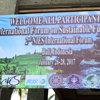 2017-2-2Opening: 2nd NIES International Forum
2017-2-2Opening: 2nd NIES International Forum
-
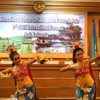 2017-2-3Environmental Monitoring and Environmental Risks and Health
2017-2-3Environmental Monitoring and Environmental Risks and Health
-
 2017-2-6Waste Management and Recycling and Biodivesity
2017-2-6Waste Management and Recycling and Biodivesity
-
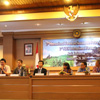 2017-2-10Synergizing Mitigation and Adaption Action
2017-2-10Synergizing Mitigation and Adaption Action
-
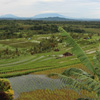 2017-2-23Field Trip to Jatiluwih – Rice terrace designated as a UNESCO World Cultural Heritage Site
2017-2-23Field Trip to Jatiluwih – Rice terrace designated as a UNESCO World Cultural Heritage Site